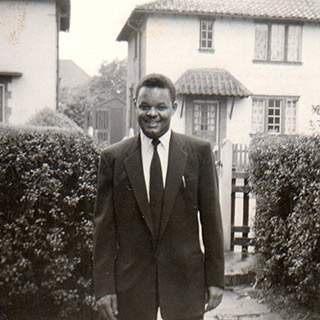 The protagonist, Tio Mourillon, is based upon my father, Max LeBlanc, who emigrated from Dominica to England in 1956. He joined many from near and far, answering the call to work in the booming UK steel industry, which was about to burst into the 'white heat of technology'.
The protagonist, Tio Mourillon, is based upon my father, Max LeBlanc, who emigrated from Dominica to England in 1956. He joined many from near and far, answering the call to work in the booming UK steel industry, which was about to burst into the 'white heat of technology'.
Many of my friends and acquaintances have often heard me recite an old Mark Twain quote that goes as follows:
"When I was fourteen I thought my father knew nothing. By the time I was twenty-one, I was astonished how much he had learned in seven years"
Actually, that's a less harshly worded version of the original quote. What I like about that quote is that it encapsulates many things - the arrogance of youth, the appreciation as one gets older of a parent as a fully rounded human being rather than an authority figure, the often silent and little appreciated sacrifices a parent makes.
I'm not entirely sure it's ever truly possible for a son or a daughter to fully understand his or her father, but it is possible to appreciate them. Over the years I came to appreciate mine - the man he was, the sacrifices he made, the courage and single-mindedness he showed at key times in his life, his imperfections, his integrity and inherent decency.
Much of that single-mindedness, I later I learned when researching this book, and other traits I thought specific to my father, were actually shared by many in his broader family, and indeed by many Dominicans.
The book focuses on a period in 1964 in which seemingly a hundred voices told my father that he should accept what was deemed as his place, and allow someone or someones to deny him the right to live where he and my mother chose. Within the spectrum of prejudice and bigotry faced by immigrants of my father's generation, being denied the right to live somewhere perhaps measures relatively low on the Richter Scale, but somehow the story of his fight to buy the house I grew up in was the right story to tell.
And this is it.